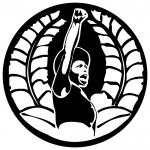“I Want The Right To Be Black And Me”
I am working on a talk that I will present in a couple of weeks. In preparation, I have been re-reading a lot of black feminist writers and practitioners. I stumbled upon an essay by Margaret Wright that I first read when I was in college. I searched for a copy online but couldn’t find one so I’ve decided to reproduce the essay here [as printed]. In light of all of the talk lately about women needing to “Lean In” and what not, this essay still appears to be relevant in a number of ways.
What parts of the piece do you think still resonate today? Which parts feel dated or off-base?
Margaret Wright, a community activist in the early 1970s and a member of Women Against Repression, a black women’s liberation group, wrote this piece in 1970. She was a married mother of four at the time.
Black women have been doubly oppressed. On the job, we’re low women on the totem pole. White women have their problems. They’re interviewed for secretarial instead of the executive thing. But we’re interviewed for mopping floors and stuff like that. Sometimes we have to take what’s left over in Miss Ann’s refrigerator. This is all exploitation. And when we get home from work, the old man is wondering why his greens aren’t cooked on time.We’re also exploited in the Movement. We run errands, lick stamps, mail letters and do the door-to-door. But when it comes to the speaker’s platform, it’s all men up there blowing their souls, you dig?
Some white man wrote this book about the black matriarchy, saying that black women ran the community. Which is bull. We don’t run no community. We went out and worked because they wouldn’t give our men jobs. This is where some of us are different from the white women’s liberation movement. We don’t think work liberates you. We’ve been doing it so damned long.
The black man used to admire the black women for all they’d endured to keep the race going. Now the black man is saying he wants a family structure like the white man’s. He’s got to be head of the family and women have to be submissive and all that nonsense. Hell, the white woman is already oppressed in that setup.
Black man have been brainwashed into believing they’ve been emasculated. I tell them they’re nuts. They’ve never been emasculated. Emasculated men don’t revolt. And if they were so emasculated, these blondes wouldn’t be running after them. Black women aren’t oppressing them. We’re helping them get their liberation. It’s the white man who’s oppressing, not us. All we ever did was scrub floors so they could get their little selves together!
It used to be that only older women felt like this. But now the younger sisters, and the ones in college, are beginning to feel the same way. They see a brother walking around campus with a blonde on his arm just after he left the BSU blowing black is beautiful. So it tees them off. Also, black women feel they have to move to the front now, because they’re doing our men in. Whenever effective male leaders come up, they either get their brains blown out, or they’re thrown in jail.
In black women’s liberation we don’t want to be equal with men, just like in black liberation we’re not fighting to be equal with the white man. We’re fighting for the right to be different and not be punished for it. Equal means sameness. I don’t want to be equal with the white community because I don’t think it’s very groovy. And why do I want to be equal with something that ain’t groovy?
Men are chauvinistic. I don’t want to be chauvinistic. Some women run over people in the business world, doing the same thing as men. I don’t want to compete on no damned exploitative level. I don’t want to exploit nobody. I don’t want to be on no firing line, killing people. I want the right to be black and me.
Source: cited in Mary Reinholz, “Storming the All Electric Dollhouse,” West Magazine, Los Angeles Times, June 7, 1970. [also in Black Women in White America: A Documentary History, edited by Gerda Lerner]

